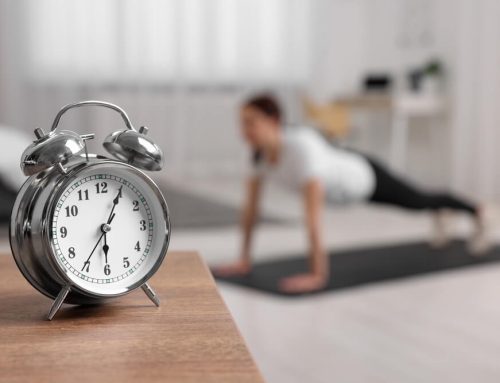It’s a well-known fact that when we get busy the first thing we let go is ourselves. Think about it. When things get heavy, you don’t take a few days off work, you a skip a few trips to the gym, and limit your lunch menu to the 7-11 special of the day. Is “ I’m not hurting anyone but myself” beginning to sound cliche?
Within that expression lies the whole basis for the self-care revolution. According to the proponents of the movement, when we overload ourselves with tasks, we start to blow fuses, and when we start to blow fuses, that’s not good for anyone. Team Self Care would argue that trying to take on too much and ignoring your own needs in the process actually decreases productivity. We become less focused, more stressed, and just plain exhausted. No one’s at their best when they’re like that, even if she just had a manicure.
So what we do to join the self-care revolution? Do we need to sign up somewhere or is there some kind of chat room or forum? No, we just need to practice self-care and that’s what this is all about. Read on to find out how you can become a member.
What Is Self Care?
Chances are before you start practicing self-care, you’ll want to get a little idea of what it is first. In a nutshell, self-care is about empowering yourself while letting go of complete control. It refers to making executive decisions to put our emotional, physical and mental needs first. It’s key in improving mood, decreasing anxiety and forming healthy relationships.
Another thing about self-care is that it needs to be actively planned, otherwise, it has a funny way of going on the back burner. To qualify as self-care, the activity has to be done consciously. It’s active rather than passive.
Why Do We Need To Be Taught How To Take Care of Ourselves?
At first, self-care seems like a no brainer. We know ourselves best, we should be the ultimate authorities when it comes to taking care of ourselves. So why do our diets resemble a McDonald’s kiddie meal, and why haven’t we spoken to our mothers in two months?
The problem with self-care is that good old hard work ethic that’s been ingrained in us for years. Some of us have been so programmed to work hard, that we feel like fish out of water when we’re not.
Another problem is that people confuse self-care with self-centered. Part of practicing self-care is the acceptance of the fact that it isn’t only about our own needs. When we take care of ourselves, we can better take care of our loved ones as well.
The Benefits of Self Care:
Aside from building compassion, self-care is also crucial to our own physical, emotional and mental well-being. Here are some of the personal benefits of practicing self-care:
Self-Care Boosts Your Self Esteem
When you have a good relationship with yourself, a new aura of confidence surrounds you. You’ll find yourself exuding positivity and gaining new respect from those around you.
Healthy Balance Between Work and Life
It may seem counterintuitive to think that we can actually accomplish more by doing less. However, when working too hard leads to mental depletion and disorganization, it might be a signal that its’ time to restore some balance.

Taking intermittent breaks from work is a form of self-care too. Set professional boundaries to ensure that you stay motivated, alert, and healthy.
Self-Care Helps Manage Stress
If stress is the way the body responds to demands than it follows that the more demands we put on ourselves, the more stress we have. Self-care is an active decision to say no to certain demands. It takes off the pressure by cutting down on the toxic effects of stress while improving your mood and boosting your confidence level.
Self Care Makes You Mindful
Got mindfulness? You know, that ability to stay totally in the moment even when you have your SAT the next day? Self-care means focusing on the little things, like taking an indulgent coffee break or a soaking in some freshly bath-bombed water. You’d be surprised how far these self-care practices can go when it comes to keeping even the most overloaded minds in the present.
Self Care Keeps You Physically Healthy
Can one self-care activity a day keep the doctor away? Self-care isn’t just about mental care. Practicing good physical hygiene qualifies as self-care, as do exercising, eating right, and getting enough sleep. If that can save you from a few hours in the waiting room, let the revolution begin.
Getting Started with Self-Care
So, ready to jump on the self-care bandwagon? Who wouldn’t be? But it might require a little mental rewiring to help you stay connected. Here are some tips on getting your mind ready to embrace the phenomenon known as self-care.
- Rethink self-care. According to Dr. Jennifer Michaelson, Psy.D., “self-care should be viewed as a “basic need rather than a weakness.” She urges us not to think of the practice as selfish, but rather as a daily activity that makes us more available to others and reminds us that we have less to give when our minds and bodies are overtaxed.
- Pay attention to your needs. In today’s fast-paced world, it would be safe to say that most of us wouldn’t know our needs if we fell over them. That’s why Dr. Michaelson suggests setting a timer to go off every hour to check on them. She believes that we should take sixty-minute intervals to ask ourselves whether we’re hungry or stressed and take a time out to think about what hunger and stress feel like in our bodies.
- Start with the basics. If you’re hungry, eat. If your nails are looking shabby, get a mani-pedi (only kidding, wait for the self-care intermediate level for that one). Eventually, you’ll develop your own routine and rhythm. In the meantime, keep your eye out for new opportunities to practice self-care in order to find out which ones work best for you.
The Different Types of Self Care
Two Hundred and Sixty Four Self Care Ideas, 133 Activities to Add to your Self-Care Plan: TMI? When you turn on your computer these days, you’ll to find enough listicles on self-care ideas to fill the pages of an epic novel. How can you narrow it down?
The answer is by type. By determining your self-care type, you can hone in on the activities best suited to your personality. Here’s the lowdown on the five types of self-care so you can get a better idea about how it all plays out.
1) Sensory Type
Do you love the idea of snuggling up on a warm blanket? Lying with a pet in your arms, or getting a deep tissue massage using essential oils? If so, the sensory type of self-care may be for you.

Sensory self-care focuses on calming your mind. It engages all the senses, making it easier to live in the present moment and let go of past resentments and future anxieties.
Other Sensory Self Care Activities:
- Walking on the grass barefoot
- Taking a relaxing bath and focusing on the feel of the water on your skin
- Soaking up the sun
- Concentrating on your breathing patterns
2) Emotional Type
If you keep a daily journal in which your totally candid about your feelings, see a therapist, and let yourself cry when you need to, chances are, you’re the emotional type. One of the biggest benefits of self-care is that it gives you the ability to confront your emotions. Dealing with them head-on can help relieve stress.
In emotional self-care, there are no “good” or “bad” emotions. It’s not about changing the ones that you feel, but rather how you behave in response to them. Emotional self-care activities involve pulling up emotions and facing them head-on.
Other Emotional Self Care Activities:
- Singing along to a song that best expresses your feelings (get ready to pull out those eighties tunes)
- Make a list of words that characterize your emotions
- See a therapist (Not as in, “Oh, you’re a basket case, you really should see a therapist.” More like, “Sometimes it helps to talk to someone with some expertise”).
3) Spiritual Type
You know the spiritual type. They’re the ones you see at meditation classes or mindfulness practices. They say affirmations daily to ground their senses of self and purposefulness and walk in nature to reflect on its beauty. Never mind the fact that they just happen to be some of the most chill people in the world. Spiritual self-care is about finding meaning in life. Once you find that meaning life becomes worth living, and that’s enough to keep you cool as a cucumber.
Other Spiritual Self Care Activities:
- Make a daily list of 5-10 things that you have to be grateful about.
- Be creative (this includes art, poetry, music or even cooking up an original recipe).
- Attend a service ( religious or humanistic).
- Go on a trip to photograph things that inspire you.
4) Physical Type
You dance to your favorite songs, you’re up for yoga, you join classes to learn new sports, and love running with man’s best friend. If this describes you, the physical type of self-care is probably right up your alley.
Not convinced that taking a weekly Zumba class will make you more compassionate? Physical self-care is not only vital for the well-being of your body, but it’s also a good way of blowing off steam. You’ll be better prepared to help others when you burn off some of that extra cortisol.

Other Physical Self Care Activities:
- Bicycle through the countryside
- Go for a walk
- Dance to your favorite song
5) Social Type
Is your computer your steady lunch date? Maybe it’s time to get a social life. If you’re more of an introvert, the social type of self-care may not be your first choice. However, connecting with others is essential to the happiness of many people. It helps us to know there are witnesses to our lives, and that the things we do make an impact on others and reminds us that we’re not alone.
Other Social Self Care Activities:
- Cut out the bad blood. Stop socializing with people who spread negative vibes.
- Make dates to have lunch or dinner with an actual person
- Strike up a conversation with someone whom you find interesting
- Join a support group or chat room with people who have similar interests to yours.
Self-Care We Can All Practice
No matter what type you fall under, there are some self-care practices that are one size fits all. Those include:
Putting Aside Time To Exercise
No matter how much extra energy it seems to take, exercise pays off. Try recruiting a friend so you’ll have someone to hold you accountable. Apps like Sworkit suggest different exercise routines based on the amount of time you have. Alternatively, try finding a gym that’s close by, or along your commute.
Eating Well
With the busy schedules, most of us follow today, a healthy meal can sound a bit ambitious. Beth Swarecki of Lifehacker.com recommends starting small. She advises focusing on the parts of your diet you want to improve and working on them separately. Instead of overhauling your diet completely, try concentrating on things like carb intake or eating less sugar. Even a small change can make a difference.
Just Say No
According to research from John Pencavel at Stanford University, working 50- 60 hours a week causes productivity to plummet. Let your boss chew on that for a while. Sometimes taking care of yourself means protecting your schedule. You may want to set up a meeting with your boss to discuss workload and responsibility.






Leave A Comment